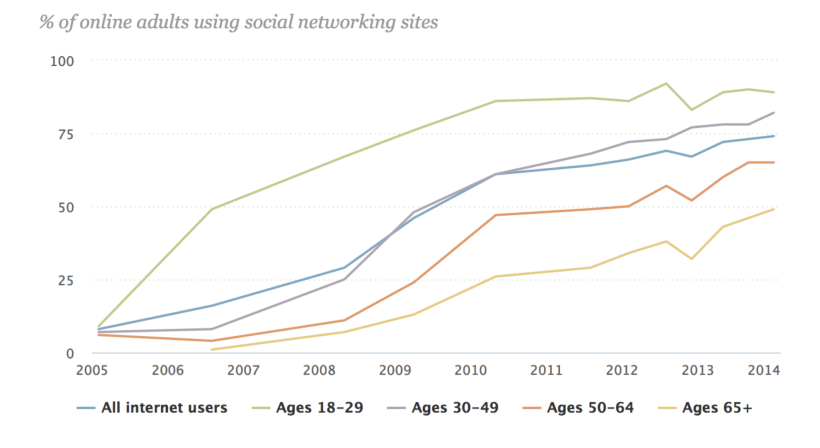Prensky in 2001 proposed a theory of digital native, those who grew up with the web, and immigrants, those who adapted to the web overtime, as clearly defined categories. However, I believe these categories are to specific and nobody can conclusively identify as ‘native’ nor a ‘immigrant’.
Under Prensky’s definition I would be considered a digital ‘native’. However, I would argue that just because I have grown up with the internet doesn’t mean I am more capable then someone who didn’t.

Looking into the online world, people like Casey Neistat, aged 35, would be seen as an immigrant. Yet he is world leading in the world of ‘vlogging’ and would seem more of a ‘native’ then me or anyone around my age. Exposure to certain areas of the internet give you these ‘native’ traits as repetition and volume of use create expertise, just like in Sport, the more you practise something the better you become at that one thing.
David White explains it well, it isn’t about age whether you are a traditional ‘native’ or ‘immigrant’ but it is the motivation of the person. The reason why I can use the internet better then my dad isn’t because of my age but because of the amount if exposure I allow myself. Under the same amount of exposure he would be able to use it just as well, therefore meaning its not a generation gap but more of a exposure question.
The revised theory of residents and visitors is more representative. Under this context people have different motivations for using the internet. Residents identify with a community, like Neistat within YouTube, while visitors use it more anonymously, leaving no personal trace . This theory is more representative of the complexity of online usage. Age is too general of a demographic to place people under, as older generations are increasingly getting more involved in online life. The graph below shows the increasing trend across all generations in using social media, thus denting Prensky’s original theory further.

There are still issues with the new theory, this is because it is still open to interpretation of individuals. I believe you cannot be conclusively a resident or visitor and instead there are different motivations that dictate your online life which can change overtime with familiarity and confidence at any age.
Sources in order of appearance:
- Prensky (2001)
- Casey Neistat’s YouTube Channel
- David White’s video
- Residents and Visitors – White and Cornu, 2011
- Graph -TomBurrellBlog
Interesting article Joe!
LikeLike
Hi Joe,
As a big fan of Casey Neistat’s work myself I was clearly drawn to your post, and I realised that you’d made a fascinating observation, in that he does indeed seem to be living evidence that Prensky’s theory is not always accurate. His use of digital media and the online world makes most others pale in comparison, regardless of whether or not they are a ‘resident’ or ‘visitor’.
Your point about exposure is interesting, and I believe it creates a compromise with Prensky’s theory, as perhaps young people allow ourselves to be more digitally exposed because ‘visitors’ are not as comfortable in the digital world. The fact that prolonged exposure can give anyone the traits of a ‘native’ I think is a particularly poignant observation, and you accurately state that people can arguably become native to different parts of ‘the digital’ based on their own preferences, and regardless of their age.
This is duly illustrated in the chart that you included, showing that internet usage is steadily increasing, even among the older age groups, and this is something that I had not previously considered. I think it would also be a fascinating exercise to explore the reasons behind the dip in usage around 2013.
Overall I found your post to be an interesting read. Occasionally the structure seems to waver slightly, making your discussion more complicated to follow, but your ideas are certainly discerning and made me consider different aspects to the debate that I had not come across in my own research.
LikeLike